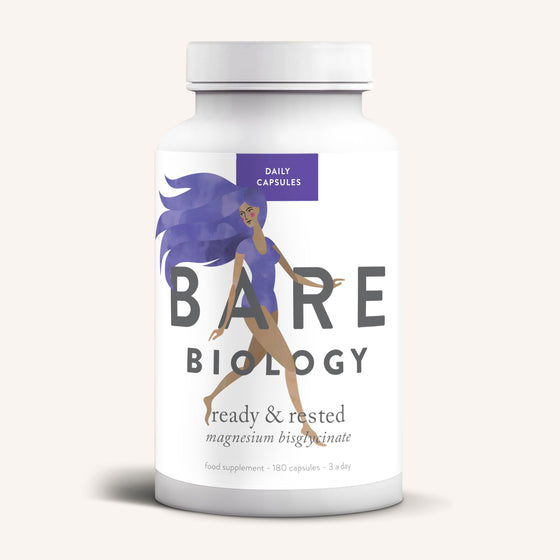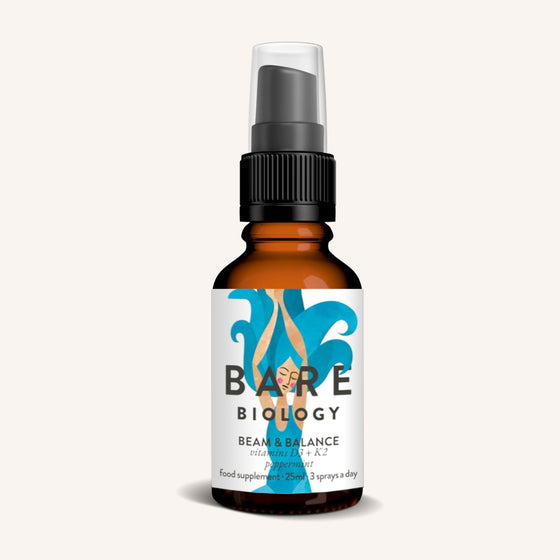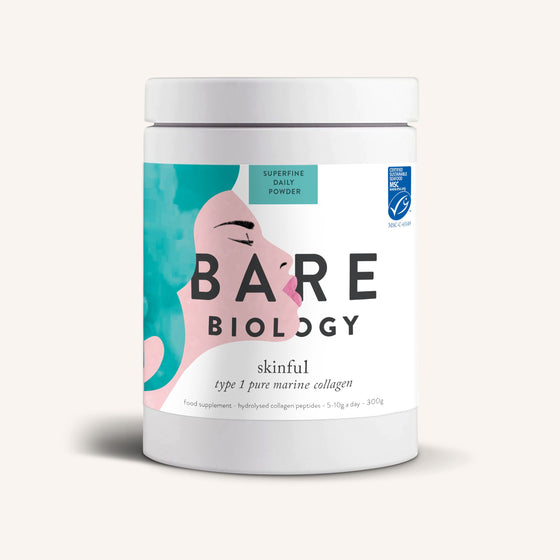Registered Nutritional Therapist, Jen Walpole, specialises in fertility and women’s health. In this blog, Jen explains the difference between omegas-3, 6 and 9 and why they are so important in relation to fertility.
What is omega-3, 6 and 9?
Omega-3, 6 and 9 are essential unsaturated fatty acids. They are essential because we cannot produce them ourselves and have to rely on our diet to get them. Although they are essential, they certainly aren’t equal and each one behaves differently in the body. For example, our hero healthy fats omega-3 and 9 are known for their anti-inflammatory properties whereas omega-6 is classed as pro-inflammatory. You need them all but the balance is key (more on that shortly!).
There are three forms of omega-3, EPA (eicosapentaenoic acid), DHA (docosahexaenoic acid) and ALA (alpha-linolenic acid). DHA and EPA are richest in fish oil and algae oil, whilst ALA is found mostly in plant forms such as flaxseed and hemp seeds. There are numerous studies highlighting the benefits of supplementing omega-3 in relation to both female and male fertility.
One study found that omega-3 supplementation prolonged the female reproductive years, which we typically see decline over the age of 35. It also improved the egg quality, which is key in relation to fertility. Omega-3 can also support male fertility, with another study showing that 4 weeks of omega-3 supplementation improved semen parameters. There are many other known benefits of supplementing with omega-3 to support fertility, reproduction and pregnancy. It helps with hormone regulation, inflammation, supports implantation and the growth and development of the baby during pregnancy.
The main forms of omega-6 are linoleic acid, γ-linolenic acid and arachidonic acid (AA), which are inflammatory in nature. The richest sources include vegetable oils, nuts, seeds, meat, poultry, fish and eggs. Whilst omega-6 does have some health benefits, the ratio of omega-3 to omega-6 is crucial. In relation to fertility, studies show us that omega-6 levels are significantly higher than omega-3 levels in infertile men. In addition, studies have highlighted that a maternal diet high in omega-6 resulted in poor reproductive success for those of advanced age.
Omega-9 is not strictly ‘essential’ as the body can produce some and so our need to supplement the diet with this essential fatty acid is much lower in comparison to omega-3. The main form of omega-9 is oleic acid, with the richest source being olive oil and studies have shown this to be beneficial to fertility due to its importance in the Mediterranean Diet.
What is the omega-3 - 6 ratio and how can I find mine?
Today’s Western diet very much leans towards the consumption of more omega-6 due to its presence in many processed foods which contain vegetable oils. This, alongside a diet low in omega-3, is where the ratio becomes unbalanced. A diet high in omega-6 can result in the omega-3 to 6 ratio being as much as 25:1 - 40:1, when this should be more like 1:1 - 4:1! A good way to stay on top of this is to limit consumption of vegetable oils and processed foods, and increase your intake of oily fish as well as considering supplementation of omega-3. If you want to test your levels you can do this using a simple blood test via Medichecks or Thriva . This can provide an interesting insight into your individual dietary needs.
How much omega-3 should you have per day?
For general good health, leading health agencies such as the World Health Organisation (WHO) suggest that the minimum amount of combined EPA and DHA healthy adults should have per day is 250-500mg. Our own UK Food Standards Agency recommends at least two portions of fish per week, one of which should be oily fish, such as salmon, mackerel and sardines. This would work out to around 300mg of EPA and DHA combined per day. Your own omega-3 needs will be based on your diet and omega-6 intake so it’s always worth seeking advice from a Nutritional Therapist.
A quick note on the Mediterranean Diet
Whilst supplementing your diet is a fantastic way to ensure daily needs are met, following the Mediterranean Diet has been shown to support fertility. It’s no surprise since this diet is rich in healthy fats including the essential fatty acids omega-3, 6 and 9. It also includes plenty of colourful vegetables, antioxidant-rich fruits, nuts, seeds, and olive oil with fish featuring more than meat and poultry.
What’s the best omega-3 supplement for fertility?
For my fertility clients, I love to use Life & Soul Omega 3 fish oil or liquid due to the high levels of both EPA and DHA. More recently, I’ve loved the option of being able to reduce the number of supplements clients are taking by recommending Rise & Shine, which contains 1000IU daily units of vitamin D3 alongside omega-3. Once pregnant, I often switch clients onto Mums and Bumps, which is another fantastic option to ensure they’re getting the correct levels of DHA during pregnancy and postpartum to support baby’s development.
References
- Nehra et al. (2012). ‘Prolonging the female reproductive lifespan and improving egg quality with dietary omega-3 fatty acids’. Aging Cell. 11 (6), pp. 1046-1054. https://pubmed.ncbi.nlm.nih.gov/22978268/
- Esmaeli et al. (2015), ‘Dietary fatty acids affect semen quality: a review’. Andrology. 3 (3), pp. 450-461. https://pubmed.ncbi.nlm.nih.gov/25951427/
- Safarinejad and Safarinejad. (2012). ‘The roles of omega-3 and omega-6 fatty acids in idiopathic male infertility’. Asian Journal of Andrology. 14 (4), pp. 514-515. https://www.ncbi.nlm.nih.gov/pmc/articles/PMC3720081/
- Nehra et al. (2012). ‘Prolonging the female reproductive lifespan and improving egg quality with dietary omega-3 fatty acids’. Aging Cell. 11 (6), pp. 1046-1054. https://pubmed.ncbi.nlm.nih.gov/22978268/
- Weaver et al. (2009). ‘Effect of dietary fatty acids on inflammatory gene expression in healthy humans’. Journal of Biological Chemistry. 284, p. 15400-15407. https://www.ncbi.nlm.nih.gov/pmc/articles/PMC2708836/
- Safarinejad (2011). ‘Effect of omega-3 polyunsaturated fatty acid supplementation on semen profile and enzymatic anti-oxidant capacity of seminal plasma in infertile men with idiopathic oligoasthenoteratospermia: a double-blind, placebo-controlled, randomised study’. Andrologia. 43 (1), pp. 38-47. https://pubmed.ncbi.nlm.nih.gov/21219381/
- Wise et al. (2018). ‘Dietary fat intake and fecundability in 2 preconception cohort studies’. American Journal of Epidemiology. 187 (1), pp. 60-74. https://www.ncbi.nlm.nih.gov/pmc/articles/PMC5860620/






